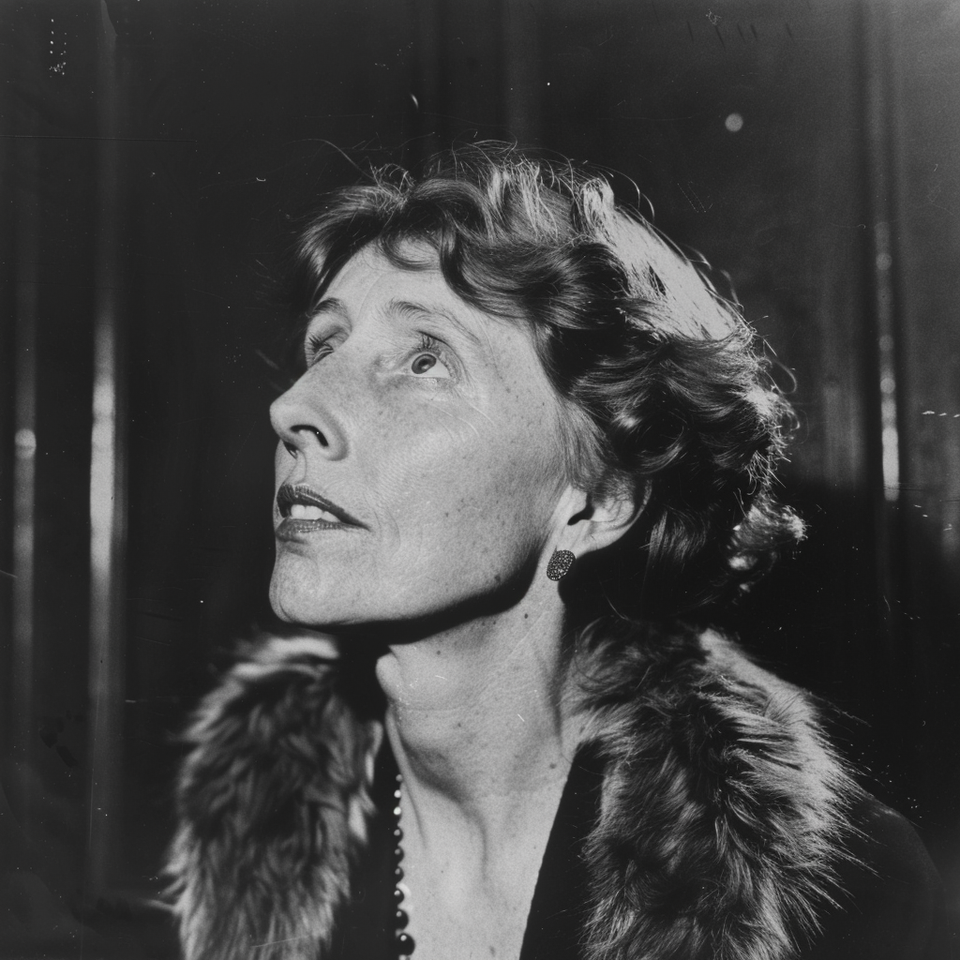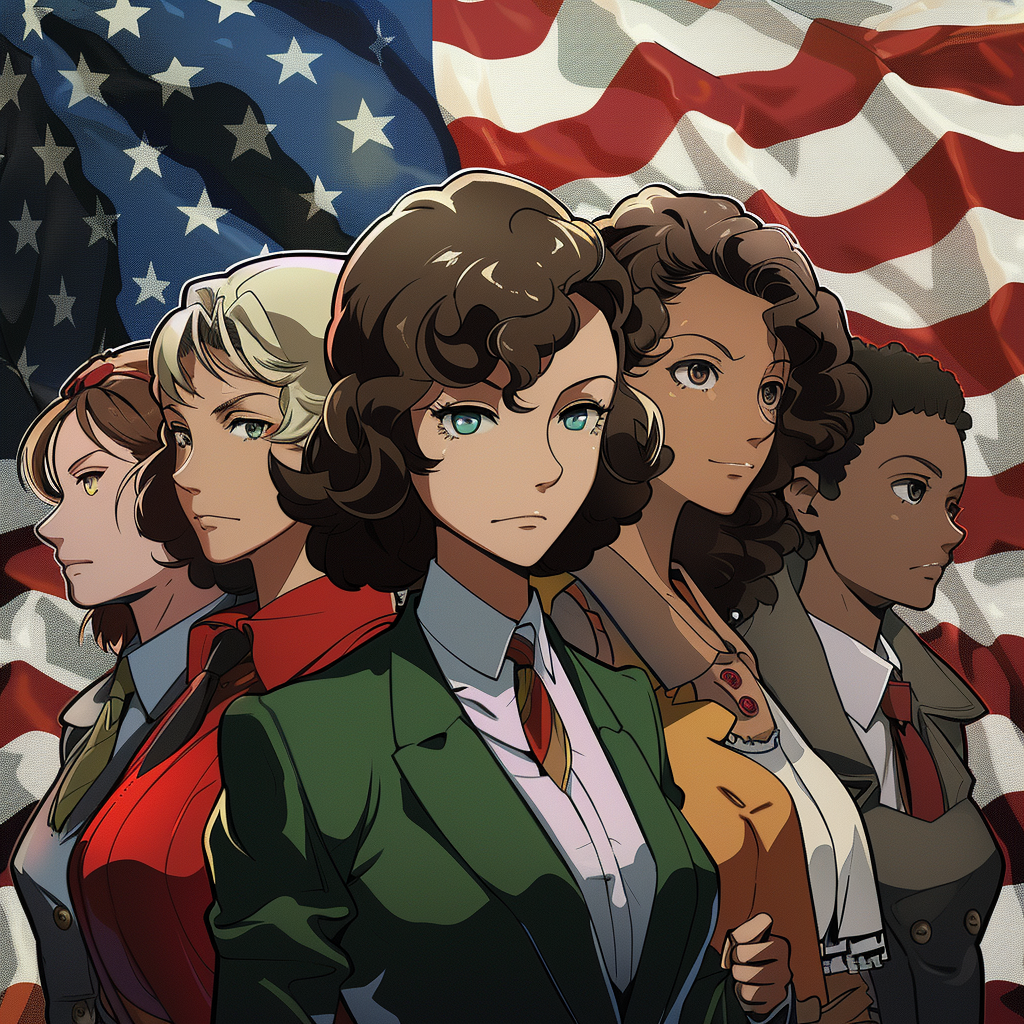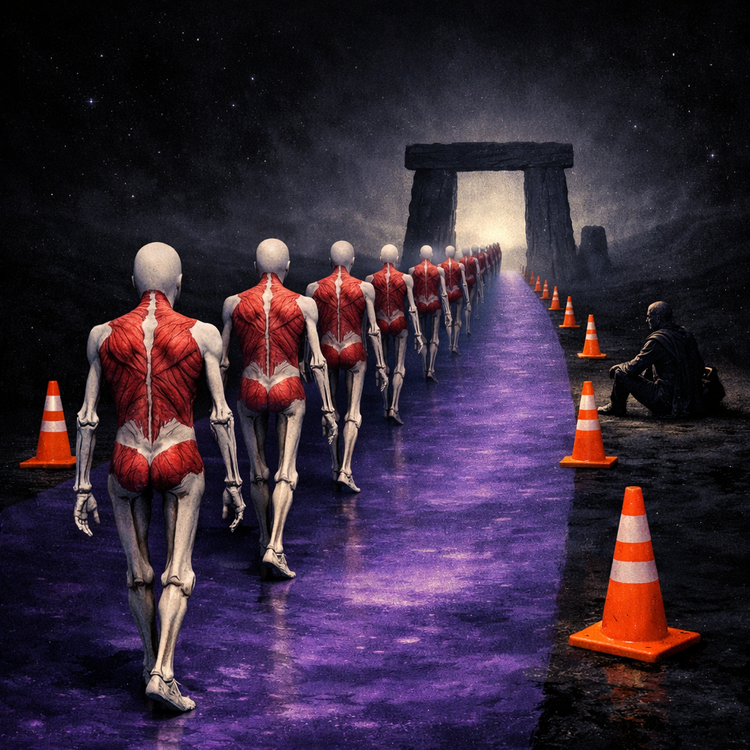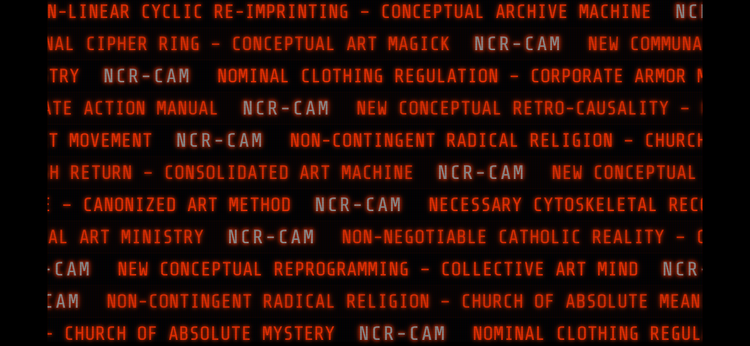Who’s afraid of Feminism wolves?

In the tapestry of feminist thought, Virginia Woolf's words shine like gossamer threads, delicate yet unbreakable, weaving a vision of equality that resonates across generations. Her prose, at once lyrical and incisive, offers a lens through which we can examine the evolving landscape of women's rights, from the suffragette movement of her era to the corridors of power where women now vie for the highest office in the land.
Woolf's observations on the human condition, culled from her novels and essays, serve as waypoints on the journey towards gender parity. In "Jacob's Room," she muses:

"The strange thing about life is that though the nature of it must have been apparent to every one for hundreds of years, no one has left any adequate account of it. The streets of London have their map; but our passions are uncharted. What are you going to meet if you turn this corner?" (Woolf, "Jacob's Room")
This sentiment echoes the unexplored territory of women's experiences in a world that had long privileged the male perspective. Just as the suffragettes of Woolf's time ventured into uncharted political waters, today's women leaders navigate the unmapped realms of governance and policy-making.
The author's keen awareness of life's fleeting nature underpins her urgency for equal rights. In "Mrs. Dalloway," she writes:
"A whole lifetime was too short to bring out, the full flavour; to extract every ounce of pleasure, every shade of meaning." (Woolf, "Mrs. Dalloway")
This poignant observation underscores the injustice of limiting half of humanity's potential. It's a rallying cry that echoes through the campaigns of women who have sought the presidency, from Victoria Woodhull in 1872 to the groundbreaking runs of Shirley Chisholm, Hillary Clinton, and beyond.

Woolf's contemplation on life's meaning in "To the Lighthouse" speaks to the incremental nature of progress:
"What is the meaning of life? That was all — a simple question; one that tended to close in on one with years. The great revelation had never come. The great revelation perhaps never did come. Instead there were little daily miracles, illuminations, matches struck unexpectedly in the dark; here was one." (Woolf, "To the Lighthouse")
Each woman who steps into a voting booth, each girl who dreams of the Oval Office, each female candidate who throws her hat into the ring: these are the sparks that Woolf foresaw, gradually illuminating the path to equality.
In "A Room of One's Own," Woolf captures the duality of existence:
"The beauty of the world which is so soon to perish, has two edges, one of laughter, one of anguish, cutting the heart asunder." (Woolf, "A Room of One's Own")
This bittersweet reflection mirrors the journey of women in politics — moments of triumph tempered by setbacks, victories shadowed by ongoing struggles. It's a journey embodied by figures like Margaret Chase Smith, the first woman to have her name placed in nomination for president by a major party in 1964, and the waves of women who followed, each carving a little more space in the political sphere.
Perhaps most prescient is Woolf's observation on the universal human struggle and the crucial role of self-belief:
"Life for both sexes — and I looked at them, shouldering their way along the pavement — is arduous, difficult, a perpetual struggle. It calls for gigantic courage and strength. More than anything, perhaps, creatures of illusion as we are, it calls for confidence in oneself. Without self-confidence we are as babes in the cradle." (Woolf, "A Room of One's Own")
This insight cuts to the heart of the ongoing quest for a woman president. The barriers are not just external but internal — the confidence gap, imposter syndrome, the weight of centuries telling women they don't belong in the halls of power.
As we stand in the third decade of the 21st century, with women serving as vice president, speaker of the house, and supreme court justices, Woolf's words remind us of how far we've come and how far we have yet to go. The uncharted passions she spoke of are being mapped with each passing election cycle. The daily miracles accumulate: a woman accepting a major party's nomination for president, young girls seeing themselves represented in positions of power, the normalizing of women's voices in political discourse.
Yet, the struggle persists. The edges of laughter and anguish continue to cut as women push against the glass ceiling of the presidency. But armed with the self-confidence Woolf knew was vital, and standing on the shoulders of pioneers from Susan B. Anthony to Ruth Bader Ginsburg, the women of today and tomorrow are poised to turn that final corner, to strike the match that will fully illuminate the highest echelons of power.
In the end, Woolf's writings serve not just as commentary but as prophecy. Her words sketch a world where women's rights are not just protected but celebrated, where the full flavor of life is available to all, and where the presidency is not a question of gender but of merit. As we continue to work towards this vision, we honor Woolf's legacy and the countless women who have turned her words into action, edging ever closer to the day when a Madame President will no longer be the stuff of fiction but a lived reality.

Works Cited:
Woolf, Virginia. "Jacob's Room." Hogarth Press, 1922.
Woolf, Virginia. "Mrs. Dalloway." Hogarth Press, 1925.
Woolf, Virginia. "To the Lighthouse." Hogarth Press, 1927.
Woolf, Virginia. "A Room of One's Own." Hogarth Press, 1929.






Member discussion